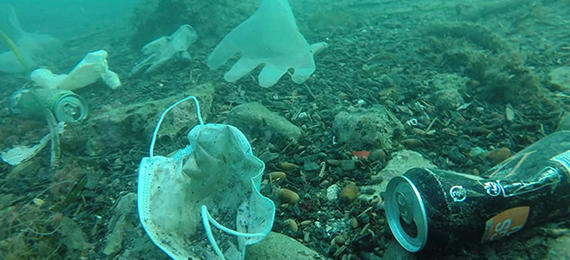
Face masks as a safety measure to protect ourselves from the novel Coronavirus has been made mandatory ever since the outbreak of the pandemic. While single-use surgical masks were the first ones to hit the market, slowly sustainable fabric and reusable N95 masks were mass produced. However, a recent survey has shown that face mask pollution in the ocean has increased extensively during the pandemic.
Ocean Plastic Pollution by Face Mask
Are Disposable Masks Recyclable?
- A. Yes
- B. No
According to the study, an estimated 1.56 billion face masks would have entered the oceans in 2020 and the numbers are more likely to increase in the coming year. Single-use facial masks are usually made using polypropylene and can cause serious damage to the environment. PPE masks are hard to recycle as well. Reports suggest that it might take more than 450 years for a single mask to decompose. And in the meantime, it can harm the sea animals to a great extent.
The major disadvantage of PPE masks is that they are hard to recycle. Fear of infection and difficulty in recycling because of its composition make these masks enter the ocean. This along with contaminating the water, is a major threat to the sealife.
How to Reduce Ocean Plastic Pollution Caused by Face Masks?
Sustainable alternatives to polypropylene face masks have started making their way into the market. We can switch to cloth masks that can be washed and reused. But, here again, it is still unclear how much protection these masks can provide. In high-risk situations such as being in close proximity with an infected person, it is believed that cloth masks have little use. However, the general public can still wear it while stepping out.
Proper disposal of PPE masks is another significant factor in helping reduce the ocean plastic pollution. Waste disposal companies and contractors should also be advised to follow guidelines during dumping.